Bandung Smart Systems
Bandung ID
The project investigated the potential of smart city technologies and the associated urban data-systems to support the sustainability and resilience of Bandung, Indonesia.
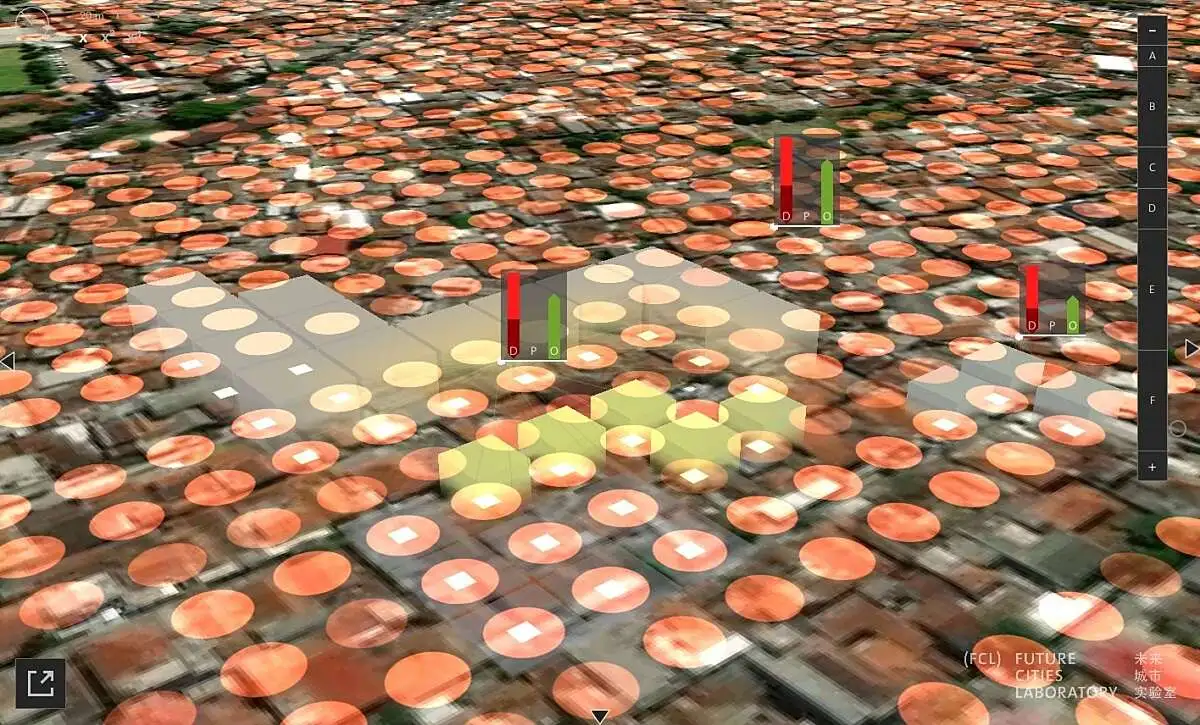
client: Asian Development Bank (ADB)
designTeam: Stephen Cairns, Devisari Tunas, Laksmi Darmoyono, Zuzana Drillet, Michael Joos, David Neudecker
The project investigated the potential of smart city technologies and the associated urban data-systems to support the sustainability and resilience of Bandung, Indonesia. Kampungs (areas in the city where most of the inhabitants reside) were selected as case sites based on their different socio-economic characteristics, their distinctive locations in the city, and their participation in the existing government and community-led kampung improvement initiatives.
The study contextualised these Kampung sites within an analysis of Bandung’s planning system, the existing smart city initiatives being undertaken in the city, and the broader pattern and drivers of development in Bandung and its hinterland.
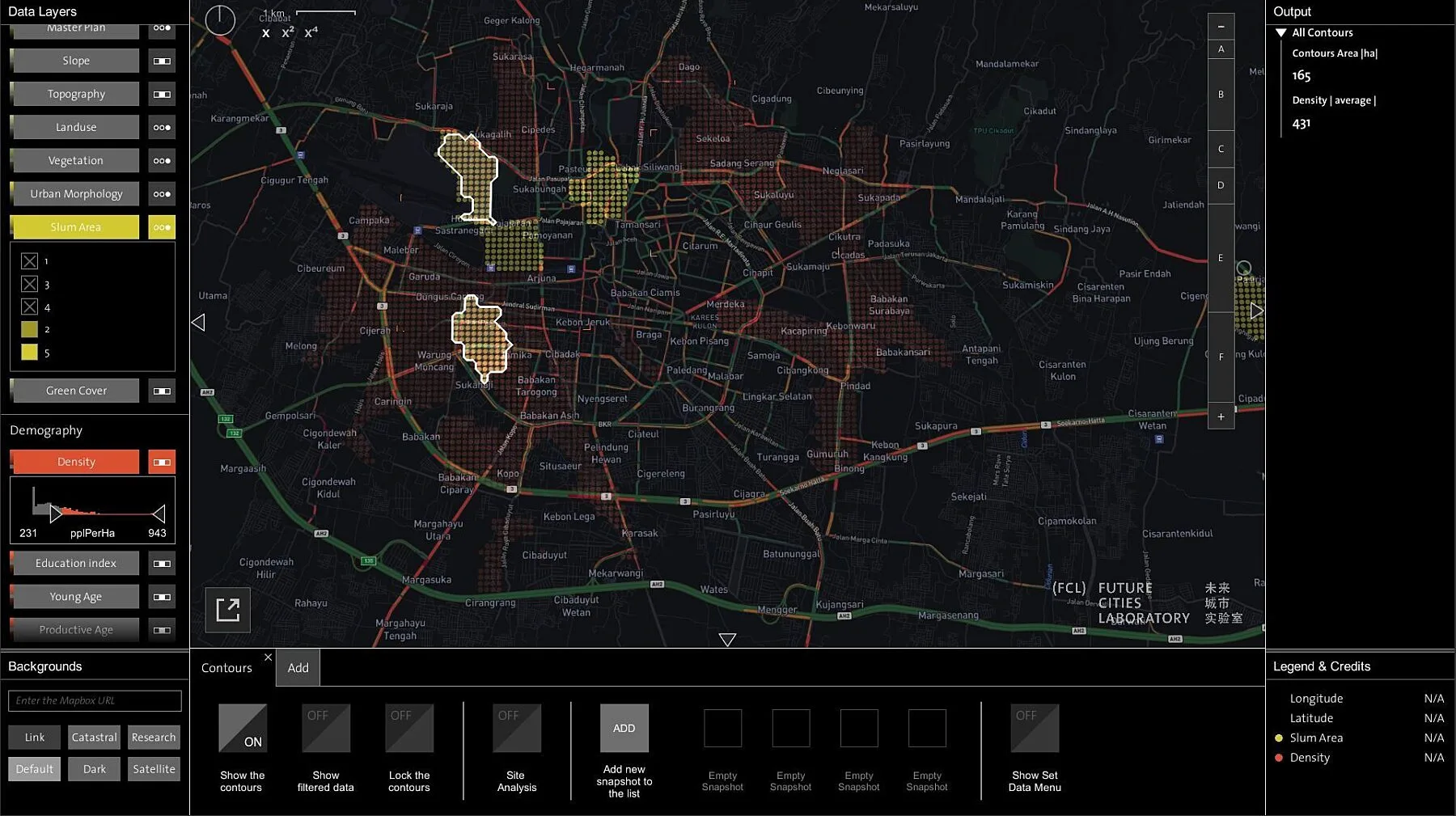
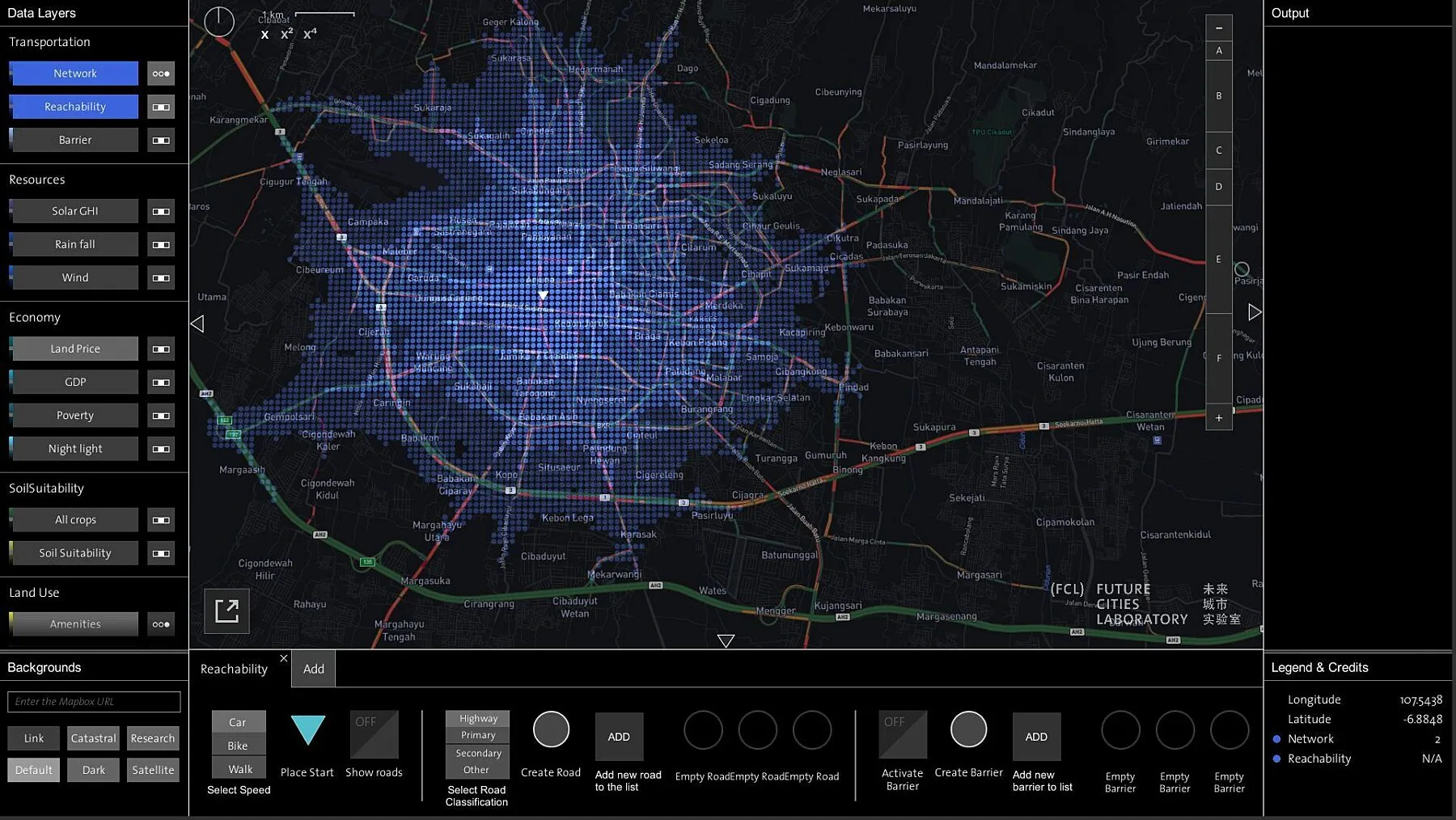
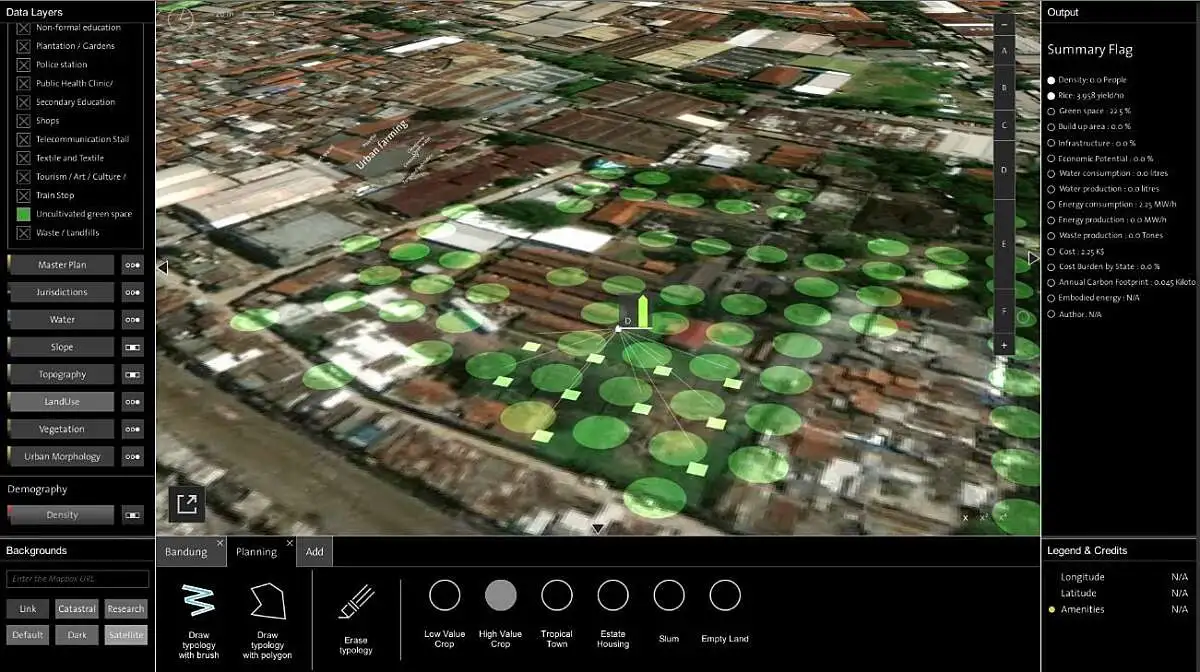
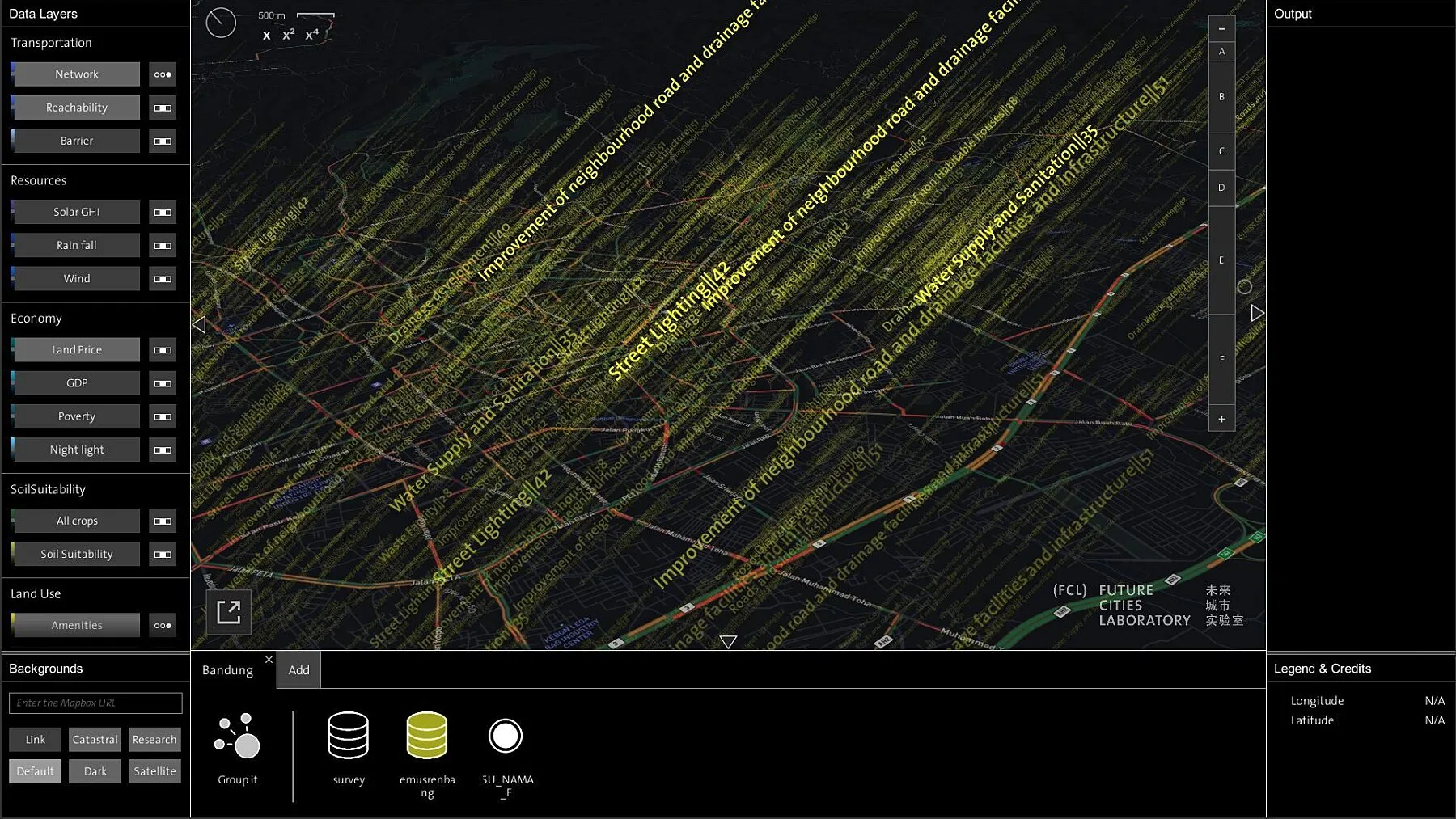
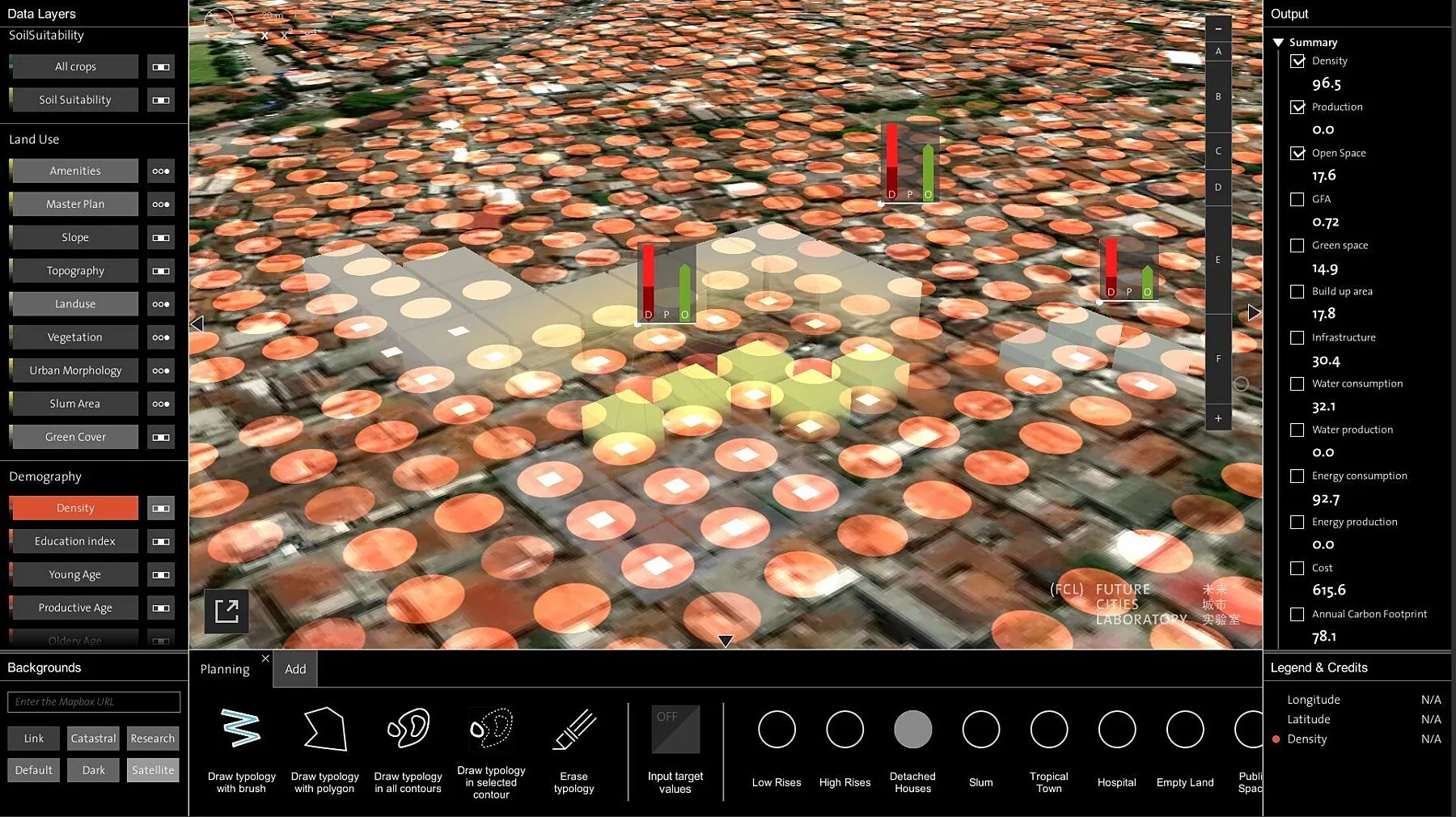
1 of 5
Previous
Next
The project adopted three overarching themes
- Physical environment- interrelationships between the physical environment (water, waste and energy infrastructure, building fabric, neighbourhood planning), economic enterprise, and public health
- Planning system- coordination of urban planning across multiple scales (household, neighbourhood, township, city and region), with a focus on participatory planning options
- Smart planning technologies- potential of big data, smart city technologies, and planning principles (strategic and participatory planning and governance) to widening participation in neighbourhood and city planning (kiosks, kampungspecific apps).
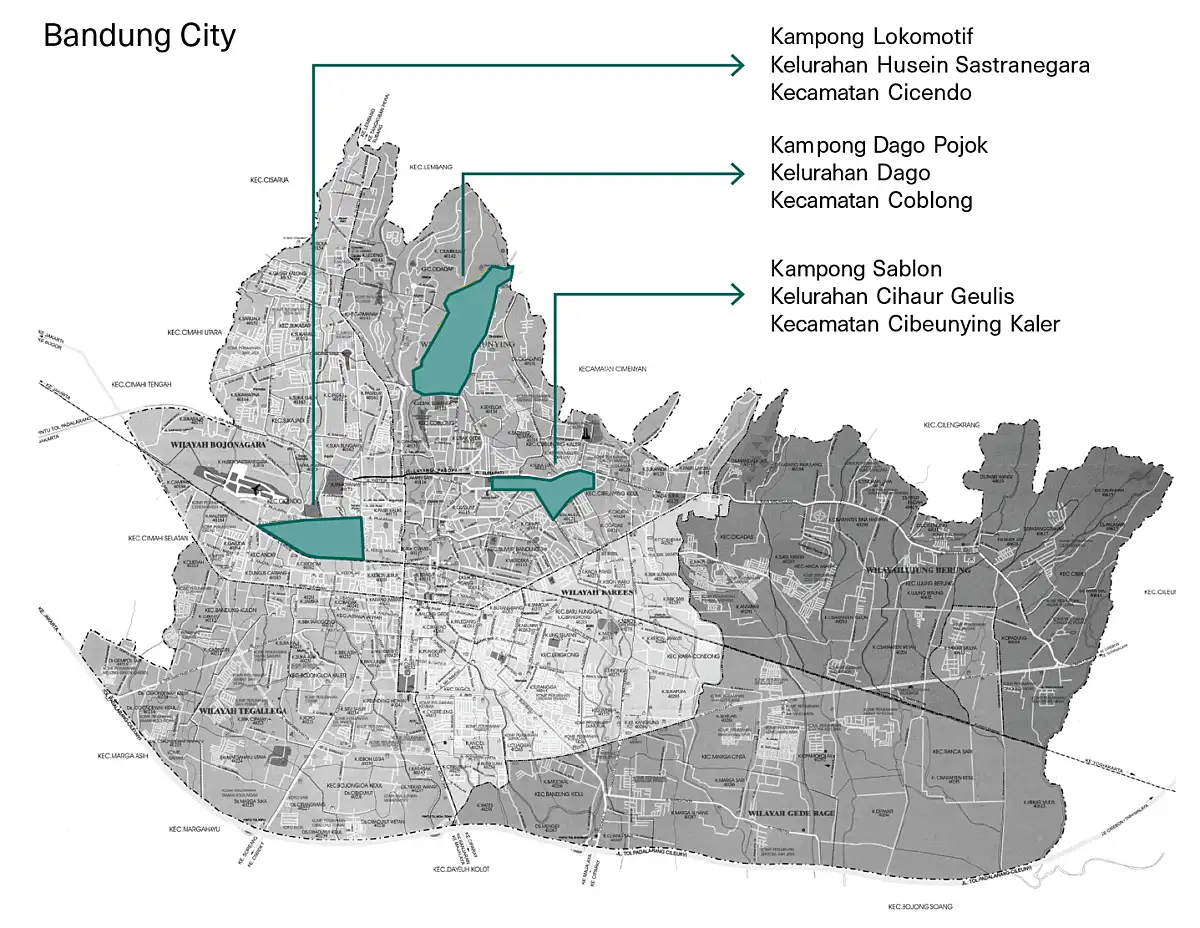
Map of the location of three kelurahan (village) units: Kelurahan Husein Sastranegara (Kampung Lokomotif), Kelurahan Dago (Kampung Dago Pojok) and Kelurahan Cihaur Geulis (Kampung Sablon).